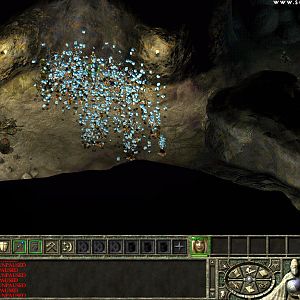-

- Forums
- Chatrooms
- Gallery
- Gameplay Videos
- Upload
- Articles
- Mod Reviews
- Shop SP: Games, Movies, Books

There's no longer any discussion about mobile gaming being the big thing the industry has been waiting to capitalize on. What's worrying about the massive expansion of mobile is that not only is the presence of gaming certain, but the future is becoming predictable, with giant companies making sure we don't return to our controllers and desktops.
All trends can be translated through the words of investment, and just recently, the Israel-based massive social games developer Playtika bought the innovative InPlay Labs. It's the typical story of the big fish eating the small fish, yet what makes it intriguing is what this and similar other moves mean for the future of gaming and our experience as the ones who ultimately carry the weight: the gamers.

Why Spend $300 Million Dollars?
A background check is needed to help you conclude why a Chinese-owned game developer with a controversial reputation as a social casino developer would spend this massive sum on another, much smaller company that's only had one big breakthrough game.
The event that laid the ground for it is the most counterintuitive of them all: Playtika announced that they would close their studios! However, bankruptcy is not the culprit, as after a massive Chinese investment, the company declared that it was shifting from a creator to "an external investor and publisher of games".
InPlay Labs, on the other hand, is more than happy to be sold, as beyond the money, the CEO declared that it would "take Innplay Labs to new heights." If Activision's CEO said something similar when they got bought by Microfot, thus giving the tech company the right to titles such as Halo and Call of Duty, how could the much smaller InPlay labs oppose it?
One side has the money and wants to get rid of its bad branding, and the other is the money-making idea that gamers love, so what could go wrong with it?
The Impact on The Gamer
Playtika's business model is based on making money from selling virtual assets, a.k.a. the pocket money we spend on getting perks and buying skins, chests, and everything else you might ever purchase in an online game.
If one of the biggest gainers out of microtransactions is buying all the titles, then expect those transactions to become even more macro in quantity. The industry is bound to reach $300+ billion by 2030, which is how it's projected to do so.
For the business, it's better to have millions of pocket money from multiple games than craft one fine immortal game like the old-day classics we all remember - and when this business has a catalog of games under its belt, one title is only a number on a chart among the many others.
The main consequence is not that one company will earn a lot but that the birth of new ideas will be slower if the same monetizing formula, based on exploiting short-term desires, not crafting better games, keeps working - the same as how franchises are getting endlessly repeated in the movie industry because they are a 'safe' bet.
The True State Of Indie Games
In music, only a few indie record labels are truly independent. Most of them are owned by the big media 3. A similar phenomenon is happening now in the much newer gaming industry. Every creative company's dream is to make the best game ever. Yet, every investment firm's dream, like a record label in the old days, is to buy all the titles so that if a 'product' happens to be a massive hit, they own it!
Playtika has thus far made millions by integrating their games into social networks, and knowing the mobile trend is just going up, aimed to immediately capitalize on the company whose goal was to "shape the next generation of mobile gaming".

It has happened before, yet it will draw up more big firms following the same winning formula that, over time, saturates the market and doesn't allow pure indies to push through. It would be interesting to see if they would be up for putting their more non-demanding titles on a dedicated online gaming platform similar to the ones that casinos have.
The user flow they have there is more deliberating in terms of player choices; they open up an account and browse the offerings among particular game providers based on genre (e.g. poker, live games, baccarat, roulette), pick and choose a title they want to play or revert back again to other games, meaning they can hop around different genres, without needing to download or generally wait for something to happen. Although those games would be "a bit different" from your regular jackpot titles found on such online casinos, you would definitely have a comparable experience of getting things going.
Ideas Can't Be Traded
Games always start with an idea, and ideas luckily can't be bought - the permission to replicate them exists, but eventually, something creative is needed to restart the market.
On the positive note of all the mass industry shopping carts, a 'counter-culture' of gaming is being born, and it can be felt in the community, the few rising indie developers, and some big companies in the East that are finally giving up on past titles for new existing games.
The future is bright, but the market is slow - that's how it has always been and will be for quite some time.


